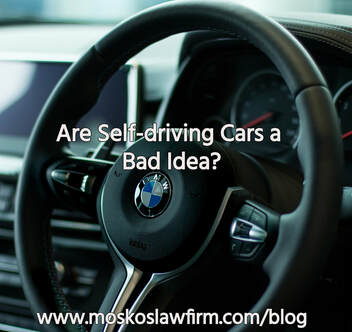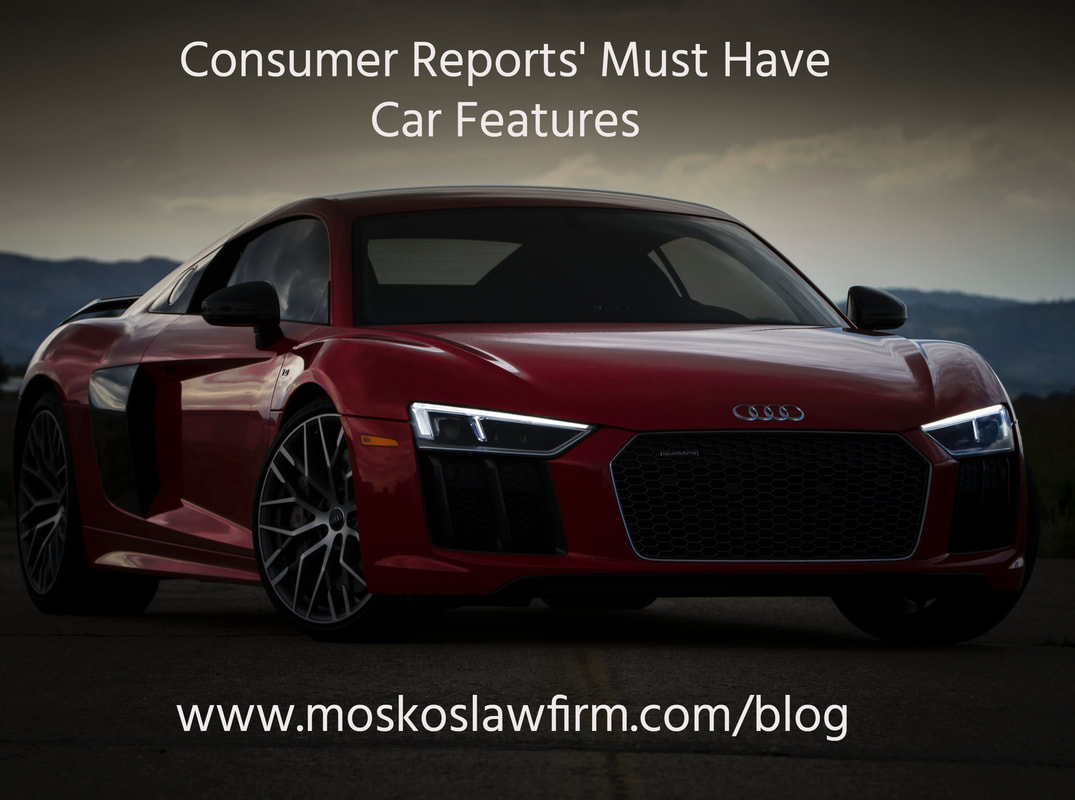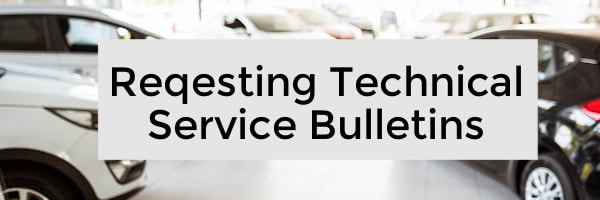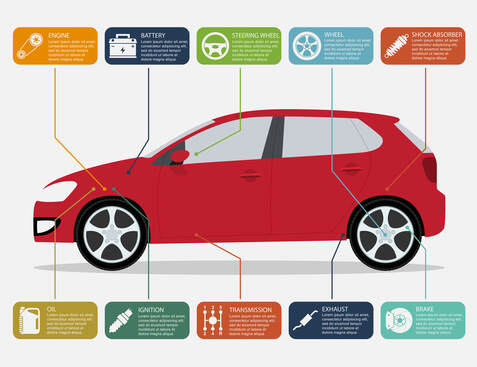|
When innovation meets the road, it is a very exciting idea that you want to join in on. The 2024 Tesla Cybertruck, with its futuristic design and promises of cutting-edge technology, was supposed to revolutionize the pickup truck market through the Tesla brand. However, in the short time since its release, there have been a series of consumer complaints and recalls that show that it might not be as amazing as you expected. Luckily, the South Carolina Lemon Laws are in place to protect consumers like you. Even with its robust appearance and advanced features, the 2024 Tesla Cybertruck has 7 official complaints filed with the NHTSA in the short time it has been on the market, making it one of the worst cars of 2024. This shows the potential reliability and safety concerns associated with this vehicle for consumers like you. The issues include electrical system failures and steering problems, which could leave you without control of your vehicle when you need it most. There are also concerns about visibility due to wiper malfunctions. One alarming report involved a steering alert that prevented the vehicle from being driven just after delivery, illustrating immediate and significant risks to driver safety. On top of the car complaints, Tesla has initiated two recalls affecting the Cybertruck that address critical safety issues that could impact drivers unexpectedly. This is more than many vehicles have in their entire life cycle. The first recall involves a trapped accelerator pedal, which could lead to unintended acceleration—a dangerous scenario on any road. The second, a systemic issue with incorrect font sizes on warning lights, might seem minor but can severely affect a driver’s ability to respond to critical alerts. Ultimately, this increases the risk of accidents. South Carolina’s Lemon Law provides you with the protection you need as a vehicle owner when you find yourself facing repeated and unresolved issues from a new vehicle that you purchased in the last three years. If your Cybertruck has persistent problems that Tesla cannot fix, you might be eligible for relief under the Lemon Law. You may be able to get a replacement vehicle or even a refund. That means you won’t find yourself left to shoulder the burden of a defective vehicle on your own. You don’t have to navigate these challenges alone. Steven Moskos is ready to help. If your experience with a 2024 Tesla Cybertruck is turning your dream into a distressing liability, it might be time to assert your rights. Contact us today to explore your options under the SC Lemon Law.
When you purchase a new car, you anticipate reliability, safety, and smooth driving. However, if you own a 2022 Chrysler Pacifica, you may have found that this celebration of a new car has turned into a series of unexpected and dangerous issues. This vehicle was once celebrated for its family-friendly features but is now one of the worst cars on the road because of consumer complaints and significant safety recalls. A Closer Look at the Car ComplaintsAccording to the NHTSA, the 2022 Chrysler Pacifica owners filed 143 complaints based on their experiences with this vehicle. They experienced issues ranging from complete power loss on highways to unpredictable braking and electrical malfunctions. Here’s what owners are facing: Electrical System FailuresThe electrical system has been notably problematic. Owners reported a total loss of vehicle control and unexpected warning messages that led to the car shutting down even when driving on the highway. This has led to multiple drivers being left in dangerous driving conditions. Braking and Speed ControlThe vehicle’s braking system and vehicle speed control, with 11 complaints, have behaved erratically. Drivers have experienced phantom braking with no obstacles present, leading to near-miss rear-end collisions. This unpredictable behavior raises questions about the reliability of the Pacifica’s safety features. Recall Details Impacting SafetyOn top of all the complaints, the 2022 Chrysler Pacifica has been issued three critical recalls affecting many of its fundamental systems. Over 67,000 vehicles were recalled due to an electrical short that could cause unexpected engine shutdowns, increasing the risk of accidents. Another recall involved improperly tightened windshield wiper arms on over 500 vehicles, potentially leading to reduced visibility in bad weather. Additionally, more than 1,000 vehicles were recalled because seats were not properly secured, heightening the risk of injury in a crash. If you are the owner of a new 2022 Pacifica that you purchased in the last three years, you need to be aware of these critical issues. They directly impact your safety and the reliability of your vehicle. Your Rights Under the SC Lemon LawIn South Carolina, the Lemon Law is designed to protect consumers from the financial and safety burdens of defective vehicles. If your 2022 Chrysler Pacifica has shown consistent and unrepaired defects, you may be entitled to compensation or a vehicle replacement. It’s important that you document all issues and seek legal advice from a South Carolina Lemon Lawyer, like me, if your vehicle’s performance and safety are compromised.
This lawfirm focuses on Lemon Law and claims associated with auto fraud. So, if you are experiencing problems with your 2022 Chrysler Pacifica, reach out for legal support to navigate the complexities of SC Lemon Law and ensure your rights are protected. Purchasing a new car like the 2023 Chevrolet Bolt should make you excited and hopeful about all the new adventures you will have. However, for many owners, this experience has quickly turned into one associated with frustration and unexpected challenges. The 2023 Chevrolet Bolt, marketed for its innovation and green features, is now notorious for a range of issues that might qualify it for a repurchase under South Carolina's Lemon Law. A Closer Look at the Car ComplaintsThe 2023 Chevrolet Bolt safety concerns are highlighted by the 51 consumer complaints that have been filed with the NHTSA, raising a lot of questions about its reliability and safety. Some of the most common issues you might experience include:
Safety on the Line: Critical Recalls Impacting the 2023 Chevrolet BoltA question under the Lemon Law is whether the defect or condition substantially affects the use, value, or safety of the vehicle. The 2023 Chevrolet Bolt has five critical recalls that show some very serious safety challenges for potential owners. One risk highlighted involves a fire hazard following seat belt pretensioner deployment that could ignite interior carpet fibers after a crash. Additionally, there was a recall concerning the potential for passenger airbags to improperly deploy. All of these make it clear that this vehicle, which was supposed to be technologically advanced, has major safety flaws that could put you and your passengers at risk. Your Rights Under Lemon LawIf you live in South Carolina and bought your new 2023 Chevrolet Bolt in the last three years, you could be protected by the SC Lemon Law from the issues that come with one of the worst cars of 2023. This law is meant to make sure that you don't end up with persistent problems and potential hazards. Protect Your Rights with South Carolina Lemon LawSteve Moskos’ practice concentrates on Lemon Law and auto fraud claims. He understands the complexities of Lemon Law claims and is here to help if your Chevrolet Bolt's defects have not been resolved despite reasonable repair attempts. Contact us to discuss your situation and explore your options under the law.
When you choose a new vehicle, you are expecting to get a reliable partner for all the journeys you have planned. However, if you bought a new 2022 Jeep Compass in the last three years, you may have discovered it was a troubling choice that put a damper on your excitement. The 2022 Jeep Compass has amassed a significant number of consumer complaints and recalls that highlight potential risks, making it one of the worst cars to purchase. Navigating the Terrain of Car ComplaintsThe 2022 Jeep Compass has become a focal point of automotive frustration, with an alarming 147 registered complaints with the National Highway Traffic Safety Administration (NHTSA). All of these reported issues shed light on the problems affecting everything from the essential safety mechanisms to the vehicle's overall dependability. Consumer Complaints and the Electrical SystemA staggering 74 complaints target the electrical system of the 2022 Jeep Compass. Owners report a concerning trend, finding themselves in a position where the vehicle unpredictably shuts down. This most commonly happened at stop signs or lights, leaving drivers stranded without power. The onboard diagnostics indicated that the engine was running, yet the car remained immobile. These incidents cause significant frustration and create a serious safety risk. Forward Collision-Avoidance: A False Sense of Security The forward collision avoidance system, accounting for 32 complaints, has its own share of malfunctions. Drivers have experienced the system disengaging without warning, compromising safety features designed to prevent accidents. In some cases, even after updated software and multiple repairs, drivers are still left with the same issue. They go home from the repair shop just to experience a collision soon after. A Closer Look at Safety RecallsThree safety recalls have been issued for the 2022 Jeep Compass that you will need to pay attention to. Offering more insight into their safety defects, these include problems with the electrical system and seat assembly—areas critical for your safe operation of the vehicle. Your Path Forward With SC Lemon LawIf you purchased a new 2022 Jeep Compass in South Carolina and are having significant issues, you need to understand your rights under SC Lemon Law. Persistent and unresolved defects can qualify your vehicle as a lemon, potentially entitling you to compensation or replacement. Our firm is dedicated to guiding you through this process. When you need a lemon law lawyer, call Steve Moskos to make sure your rights are protected.
At first glance, the 2022 Jeep Compass looks like a modern and versatile SUV, but you just can't ignore the overwhelming volume of complaints and recalls. If you are having the same issues with your vehicle, you shouldn't wait to act. Reach out to us so we can help guide you through the SC Lemon Law process and get you back to smoother roads. Purchasing a new vehicle like the Jeep Grand Cherokee should be a thrilling and happy day. They come with the promise of advanced technology, comfort, and reliability. However, recent findings and consumer complaints are shining a light on your purchase. It might not be as smooth as you expected, making the 2022-2023 Jeep Grand Cherokee one of the worst cars to purchase. Spotlight on the IssuesThe 2022-2023 Jeep Grand Cherokee has been in the news recently for the wrong reasons. There are many concerns being reported to the NHTSA, with 7 recalls and over 115 car complaints filed for the 2023 model alone. These defects could affect your safety and that of your loved ones. Two of the biggest reported issues are with the upper control arm and rear coil springs. Upper Control Arm ConcernsThe upper control arm in the 2022-2023 Jeep Grand Cherokee has a critical flaw: it may break. That can lead to potential steering loss. Imagine driving and suddenly realizing that you can’t steer your vehicle. This experience is terrifying and can put everyone in the car at risk. This defect poses a real threat to your safety on the road. Given the gravity of steering control in vehicle safety, this problem has prompted urgent recalls and consumer alerts, placing this vehicle model in the spotlight for all the wrong reasons. Rear Coil Spring RisksIn addition to the steering issues, the Jeep Grand Cherokee’s rear coil springs have their own set of alarming issues. Over 300,000 vehicles have been recalled because these springs have the potential to detach while driving, a failure that could lead to accidents or loss of vehicle control. This defect was identified during manufacturing, with a “potentially out-of-position rear coil spring” that could become a serious hazard during travel. Although only a fraction of these vehicles are likely to have this problem, the risk it presents to unsuspecting drivers isn’t something you can ignore. SC Lemon Law and Your ProtectionIf your new Jeep Grand Cherokee continues to show defects despite multiple repairs, and you purchased it in the last three years, it might qualify as a lemon. Steve Moskos can guide you through the SC Lemon Law process. We will advocate for your right to a refund or replacement vehicle. You deserve a car that meets safety and performance standards, and we’re here to ensure that manufacturers uphold their responsibilities.
The 2022-2023 Jeep Grand Cherokee might boast impressive features, but it has faced significant safety concerns that you just shouldn’t ignore. If you’re in South Carolina and grappling with these issues, remember that Lemon Law is here to protect you. Steve Moskos is ready to help you navigate these legal waters to make sure that your concerns are addressed and your rights are protected. When you start shopping for a new vehicle, especially a family-oriented one like the 2023 Kia Carnival, you quickly put reliability, safety, and peace of mind at the top of your must-haves. Unfortunately, for some new car owners out there, this excitement has quickly turned into frustration and concern. With a troubling list of consumer complaints and safety recalls, the 2023 Kia Carnival may not be the family van you were hoping for when you drove off the lot. A Deep Dive into the ConcernsThe 2023 Kia Carnival has been the subject of 21 complaints across various systems, from the electrical setup to the engine and even the vehicle’s structural integrity. Notably, the complaints encompass critical safety features. Safety Concerns Come to the ForefrontFor families, the Kia Carnival’s allure includes its capacity and features geared toward convenience and safety. However, the vehicle has been reported to have defective 2nd-row seat belt pretensioners that fail to secure passengers during sudden stops. On top of that, there is unexpected braking due to forward collision warnings. These issues are serious safety concerns. They compromise the vehicle’s reliability, breaking its fundamental promise of protecting passengers. Mechanical Reliability in QuestionThere are also car complaints about the Kia Carnival’s mechanical integrity. Oil leaks, steering column failures, and unexplained power loss while driving are so much more than an inconvenience. They create serious risks for drivers and passengers. The Recalls: A Red FlagOn top of the consumer complaints, there are three recalls associated with the 2023 Kia Carnival, including issues that directly impact passenger safety. These recalls include one for the power sliding doors that may not auto-reverse when obstructed and another for a fire risk when the vehicle is parked due to water accumulation. This clearly shows the severity of the vehicle’s deficiencies. While recalls are a step toward remediation, they also affirm the potential dangers and inconveniences that owners like you will face. How the Lemon Law in South Carolina Protects YouLemon lawyers like Steve Moskos understand the disappointment and frustration that comes with owning a vehicle that just falls short, especially when safety is at stake. South Carolina’s Lemon Law is designed to protect consumers from exactly these types of defects. If you’re a South Carolina resident dealing with unresolved defects in your 2023 Kia Carnival and you purchased your new vehicle in the last three years, we are here to help. We specialize in Lemon Law cases and can guide you through the SC Lemon Law process.
From safety defects to performance inconsistencies, the 2023 Kia Carnival’s issues position it as one of the worst cars of 2023. We want you to know that you have rights and options under the SC Lemon Law. Contact us to explore how we can assist you in turning your lemon experience into a resolution that puts you back in the driver’s seat of a reliable and safe vehicle. When considering the purchase of a used vehicle, armed with the right information, you can evade the costly mistake of driving off with a lemon. This term, more than just a colloquial expression, refers to defective vehicles plagued by a manufacturer's defect. We're committed to helping our clients navigate the rocky terrains of the automobile world. Drawing insights from leading consumer reports, we've put together a list of the worst lemon cars for 2023. Chevy Bolt EUV
The Chevy Bolt EUV has been a topic of concern due to recurring issues with its in-car electronics and electric motor. Many consumers have reported unexpected glitches in the infotainment system and unanticipated shutdowns of the electric motor. In addition, there have been complaints about air and water leaks, which can compromise the vehicle's integrity and safety. These defects can be particularly concerning for a car owner, leading some to consult lemon law attorneys for recourse. Pacifica Hybrid The Pacifica Hybrid, while celebrated for its eco-friendly design, has faced recalls stemming from its electrical systems. The vehicles have shown an alarming tendency for their electrical components to pose risks, either by jeopardizing the vehicle's structural integrity or posing a threat to nearby flammable objects. This manufacturer's defect has led to increased attention from Consumer Reports. Kia Sorento The Kia Sorento has garnered attention due to persistent mechanical issues. Engine stalling, a particularly worrisome problem, has been reported frequently. Such malfunctions, especially if occurring while on the road, can pose serious safety risks to both the driver and other road users. Jeep Wrangler 4xe The Jeep Wrangler 4xe, despite its robust appearance, has faced recalls in recent production years. These recalls highlight potential long-term issues that could affect vehicle performance and safety. From malfunctioning battery systems to concerns about its powertrain, the Jeep Wrangler 4xe has given consumers reason to pause. Those considering this vehicle are encouraged to explore consumer reports extensively and seek advice from lemon law attorneys if they suspect they've received a defective unit. Subaru Ascent The Subaru Ascent has been flagged for a variety of mechanical issues. From reports of unpredictable engine behavior to concerns regarding the transmission, this model has found itself under scrutiny. Some owners have even reported minor problems, like infotainment hiccups, adding to the list of concerns. As always, seeking guidance from consumer reports and keeping the advice of a knowledgeable lemon law attorney in mind can prove invaluable when navigating such challenges. While every vehicle has its pros and cons, it's essential to be informed about potential manufacturer's defects or consistent issues. Should you find yourself with a lemon, don't hesitate to seek guidance from a professional regarding the SC Lemon Law, like Steve Moskos, ensuring your rights and investments are protected. A Technical Service Bulletins (TSB), in the simplest terms, is a communication from the manufacturer about a known issue or defect in a specific make and model of a vehicle, but one that doesn't warrant a full-blown recall. While they aren't mandates for repair, TSBs guide dealerships and mechanics on how to address and repair consistent issues that owners might face. Vehicle owners can now find some TSBs, or manufacturers communications, for free through the National Highway Traffic Safety Administration (NHTSA). TSBs released earlier than 2012 will not be available through the NHTSA website. Looking up a TSB is a straightforward process:
Additionally, you can request a TSB on your vehicle is through your vehicle manufacturer’s dealership or repair shop. Once you know are armed with the right information, you can begin work on getting it fixed. It's wise to approach a manufacturer’s mechanic since they possess specialized training about the specifics of your vehicle and are more equipped to tackle issues highlighted in TSBs. So, what happens if the TSB does not fix the problem in your new car? You may have rights under the South Carolina Lemon Law. The SC lemon law is geared to protect consumers from manufacturing defects that can't be repaired after a reasonable number of attempts. If you believe you have a lemon, notify the manufacturer in writing about the issue; if unresolved, you may need the help of a SC lemon lawyer, like us at Moskos Law Firm, who can assist you with a possible refund or replacement. For those who discover they've unwittingly purchased a used vehicle that was previously deemed a lemon and repurchased by the manufacturer, it's pivotal to seek advice from an SC consumer fraud attorney who can help. Having a vehicle that constantly fails to function correctly can be an ordeal. But armed with the right information about TSBs, you're equipped to tackle the challenges head-on. If you need a consumer lawyer or a South Carolina Lemon Law attorney, contact us to find out how we can help. Recently, the Ford Motor Company launched a new program called the Ford Promise program. It is intended to help those people who purchased their new vehicle and then lost their job due to the coronavirus and the downturn of the nation’s economy. It is also intended to reassure people who are considering the purchase of a new vehicle.
Anyone who purchased or leased a vehicle and financed it through Ford can now return their vehicle within the first year they own it if they lose their job. The return must be made within thirty days of losing their income. The program only covers personal vehicles not commercial or business ones. Vehicles with model years 2019, 2020 and 2021 are eligible, and the vehicle can be used, new, or certified pre-owned. This program is good for vehicles that are purchased through September 30, 2020. A value will be assigned to your vehicle using the National Automobile Dealers Association average trade-in value. The amount you owe will be reduced by that amount, and Ford will waive up to another $15,000 of your loan. If you owe more than that on your vehicle, you will be responsible for the rest of the loan. You are also responsible for any late or deferred payments, and if there is any damage to the vehicle, you must pay for that. Once all of the conditions of the program are met, the account is marked as closed and paid so no one needs to worry about a negative report in their credit report. The company states the program is to assure anyone considering a vehicle purchase but who is worried about the uncertain economy and possible job loss, that there is help available if they do lose their job. “We feel like right now, the economy is at the stage of recovery where people want things to be back to normal, they want to buy, but they’re still a little nervous about what the future holds,” says Mark LaNeve, vice president, U.S. marketing, sales and service. “We want them to know we understand that, and we’re here to support them in their buying decisions.” (media.ford.com) Anyone can end up with a new car that has constant problems. A new car like this is known as a “lemon” car, and there are laws to protect consumers who may purchase one. If you have one, you may be angry and not sure what to do first. If contacting the dealer where you purchased the vehicle does not bring you the results you need, you should contact an attorney who specializes in the “lemon laws” of your state. why you Need an AttorneyJust like other professions, attorneys often specialize in certain areas of the law. When you begin your search, make sure you ask the lawyer how much experience they have with lemon laws. If they don’t have much experience, you would be better off to search for another lawyer. The laws can be confusing, and you need someone who is familiar with the law in your area to guide you through the process of getting your vehicle repaired or replaced.
To be considered a lemon, a new vehicle must have a defect that is covered by the manufacturer’s warranty that became known during a certain time frame or number of miles you have driven. Every state has different lemon laws and different timelines which is why it’s important to contact an attorney as soon as possible after you start having problems with your new car as they are best able to guide you in the process. If you are unlucky enough to purchase a new vehicle from a dealership that cannot repair your vehicle, an attorney can contact the dealer or manufacturer on your behalf. Sometimes, a letter from an attorney is enough to force the dealer or manufacturer to discuss options with you, but this isn’t always the case. Most manufacturers require you to go through non-binding arbitration first. You and your attorney will have the opportunity to present your proof of attempted repairs and the time you were without your new car. Once the arbitration board has heard your case, the manufacturer may make an offer. You and your attorney can discuss whether to accept or decline the offer. If you decide the offer is not satisfactory to you, your attorney can file a law suit against the manufacturer of your vehicle. Your attorney can offer more of the evidence you have collected in court. Always be sure to keep careful records of repairs that were completed on your vehicle and any discussions you have had with the dealer you purchased the car from. All of this will be important in helping your lemon law attorney in building a strong case for your law suit. While it may seem like this is a simple process that you can handle on your own, the complexity of lemon laws are very confusing to someone who isn’t experienced with the law. You may miss an important detail or deadline that will prevent your car from being declared a lemon and repaired or replaced. It would be best to let an experienced lemon law attorney handle the process for you so you get the best outcome for your situation. Buying a new car is an exciting time. When you are sitting at the dealership, the salesman may try to offer you many other products for your vehicle and it is hard to make a quick decision on what you really need. A car maintenance plan is an option that your salesman may try to convince you to purchase. What is a Maintenance Plan?If you are offered a vehicle service plan, ask for specifics about what that plan is. Many dealers use that term for both extended warranties and car maintenance plans. A car maintenance plan covers services that the vehicle’s manufacturer recommends be completed to keep the car running in optimum condition. These things could be oil changes, filter replacements, and tire rotations. Dealerships have learned that offering maintenance plans can be a very profitable revenue stream for their business. These plans are prepaid and can be very valuable to have, but you need to carefully consider what is covered and what you would pay out of pocket compared to the cost of the plan. Always read all of the fine print details, and if you don’t understand the contract, consider having an attorney explain it to you. The Positives of Purchasing a Plan Dealerships rely on their service departments for a large part of their income. By selling car maintenance plans, they are guaranteed that their department stays busy. These plans are prepaid and often offer discounts on the services you will need. Remember, though, that what sounds too good to be true often is, and you still need time to think about whether you actually need the maintenance plan. Do not let a sales person talk you into something that may not fit your needs. For example, the average cost of an oil change in South Carolina is around $30. Assuming you change your oil as recommended, or about every three months, that is $120 a year. Tire rotations are about $40, and it needs done once a year. Filter costs vary, but you may plan on about $100 for filters a year. If this is your plan of maintenance, you will be paying about $260 a year in car maintenance. (You also need to check your car’s owner’s manual for recommended maintenance.) If you can get a car maintenance plan for less, it may be worth it. The Negatives of Purchasing a Plan Before you purchase a plan, carefully read your owner’s manual. These can often be found online if the dealership doesn’t have one. See what maintenance the manufacturer recommends. Some dealers still use outdated information to try to convince customers to purchase the plans. An example of this would be that new vehicles require very little maintenance. Many cars will go for more than 5,000 miles (instead of 3,000) between oil changes. This reduces your out of pocket expenses. Many manufacturers now state that your vehicle will only need significant servicing every 30,000 miles. If you don’t drive much, a car maintenance plan is probably not a good option for you. Also, once you purchase the plan, you will have no options about who services your car. Unless you decide to pay out of pocket, you will have to take your car to the dealership for services. If you aren’t happy with their service, you have no options. Another thing to consider is that the things that do wear out quickly, such as wipers and brake pads, are not usually covered by maintenance plans. The dealership may also sell the plan according to their schedule of maintenance and not what is recommended by the manufacturer. If you drive often in extreme heat or cold, oil changes may be recommended more often, but your dealership may not take these conditions into account, and you will have to pay for the oil changes yourself. The Final Cost If you decide to purchase the car maintenance plan, be sure to pay for it in full and do not add it to the total of your car or you will be paying interest on the plan, just like the purchase price of the car. To make the best informed decision, make sure to find out exactly what is covered and compare prices of those services to the total cost of the plan.
It might sound like a no-brainer to you: of course you should test drive a car before you buy it. You're likely spending thousands on one so you need to know what you're getting. But the shocking truth is that 11.4% of car buyers don't test drive their car before they drive off the lot. There are several reasons why that's not a good idea. It might be tempting to skip the part of a car purchase that involves talking to salespeople at the dealership, but it's just not a practical or financially sound decision because you can actually negotiate the price down based on what you learn. When you test drive a car, you can determine whether it's a smooth and comfortable ride. If you have a long commute, you don't want to spend a month's pay on a car only to find out that the driver's seat is extremely uncomfortable, your head hits the roof, and the windows don't block out any traffic sounds. More importantly, test driving a car gives you the opportunity to make sure it runs smoothly. Does it accelerate and brake easily? Is the steering wheel easy to turn, or do you have to spin it around ten times just to make a slight right, which might be impractical if you need to do a lot of parallel street parking or three point turns in your neighborhood.
Even beyond these basics, which may not feel important to every driver, it's important to make sure every component of the car works correctly. Test driving a vehicle gives you the opportunity to check out the headlights, windshield wipers, radio, seat warmers, and any other feature that might be prone to malfunction. Once you've checked all of these things, the knowledge you gain will give you the upper hand when it comes to negotiating with salespeople. Every few months your local dealership probably hits you with wall-to-wall advertising about their latest holiday sales promotion. These ads are all over the TV, radio, billboards, and newspapers and pressure you into a purchase decision by making it seem like the offer is too good to last. The reality is that these deals are no better than a dealership's typical prices on any other day for the most part. In fact, a lot of dealerships use these holiday opportunities to hire marketing specialists who then help the dealer increase their profit. You might see advertising language that emphasizes financing options or add-ons like prepaid maintenance. Don't buy into the temptation because this is where dealerships make most of their money, and it's an easy way to get a consumer to pay more than they're willing to by making them feel like they're getting a great deal. For example, a dealership may offer something like "pre-delivery inspection," and they can make it seem like it's mandatory, but you can always opt out of paying these bogus charges. So what should you keep in mind when buying a car?
To get a good deal on a car, a consumer needs to create their own list without a dealership's input. They should focus on cars known to be reliable, safe, and strong in road tests. It also helps to shop specifically for cars that carry high owner satisfaction rates and ones that don't depreciate quickly.
 Self-driving cars have been all over the news lately, especially because of the minor accidents some of them have experienced. But media coverage of these collisions is a bit sensational. For example, Apple’s first self-driving car crash was widely reported – but most headlines failed to note that Apple’s car was actually rear-ended by a human driver in another vehicle. In that instance, all the humans involved were okay, though the cars did suffer some slight damage. Critics of autonomous cars might point out that the Apple vehicle, a modified Lexus, was traveling less than one mile per hour to merge when it was rear-ended at about fifteen miles per hour.. One of the major concerns people have voiced about these cars is that they tend to drive too cautiously in their attempts to stay safe. For example, they tend to stop abruptly when they think humans might appear, which can lead to rear-end collisions, as aggressive drivers aren’t used to that kind of defensive behavior. On the other hand, the cars do set a good example, and perhaps it’s better that human drivers learn to accommodate overly-cautious vehicles. After all, most car accidents aren’t caused by drivers being too careful on the road. The biggest problem on the horizon for autonomous cars right now is going to be the fact that they have to drive alongside human-operated cars, which come with their own slew of variables. While both are on the road, there are bound to be accidents. With that said, Apple’s self-driving program consists of 66 cars on the roads, with 111 drivers registered to operate them. One accident involving one autonomous vehicle out of countless driving hours is a pretty good track record, all things considered. The average number of car accidents in one year in the United States is six million, and that’s with more than 250 million vehicles on the road, driven by people who are all tired, overworked, distracted, and even intoxicated. As long as an autonomous car can’t get drunk or answer a text while driving, they’ll likely be a much safer mode of transportation.  If you’re in the market for a new car, it can be hard to choose exactly what you need in a ride. There are so many different makes, models, and years to examine, and each vehicle has its own unique set of features – plus, your needs will vary depending on where you live and whether you have a big family. Most of the time, you’ll have to prioritize which features you consider essential, versus the ones that would just be pretty nice to have. According to Consumer Reports, there are eight features you absolutely need to have in your car. Unsurprisingly, most of them are safety features – after all, safety comes first. The most important feature on their list is automatic emergency braking, which can soften the impact of a collision or even prevent it. They also suggest looking for forward-collision warning (those little alerts that let you know when your car is about to bump into something) and blind-spot warning (so you don’t accidentally sideswipe anyone while changing lanes). They also suggest getting a vehicle that offers lane-keeping assist, which can track lane markings on the road and provide corrective steering if a driver changes lanes without activating the turn signal. Not everything about a new car has to be practical though. You could also invest in convenience features like a nice audio system with physical knobs, mirrors that automatically adjust for bright lights in the rearview, and a greater range of driver’s seat back support adjustments. While these things may not help prevent a car accident, they’ll help you fight fatigue and discomfort while driving for long periods. There are some features you should definitely skip, and they’re the ones the dealership will try to upsell. Don’t pay extra for bigger wheels – they’re so expensive to replace, and they’ll give you a stiff ride. Also, avoid built-in navigation systems. These can come at a cost, but they don’t really offer anything you don’t already have on your smartphone. A lot of parents may be tempted to invest in features for the kids like rear entertainment units, but in today’s world, it’s easier to just get them a tablet for lengthy trips. |
Archives
April 2024
Categories
All
|






 RSS Feed
RSS Feed